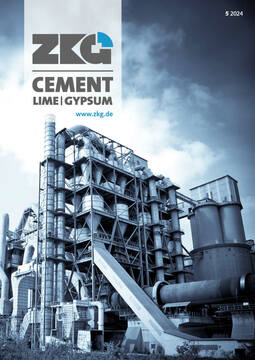Climate protection on an industrial scale
“CARMEN” project led by TU Darmstadt tests CO2 capture under real conditions
Germany wants to become climate-neutral by 2045. Experts believe that this will only be possible if large quantities of climate-damaging carbon dioxide (CO2) are captured and permanently bound or stored in industry. Researchers are working on a method for this in the new “CARMEN” project under the leadership of TU Darmstadt.
CO2 emissions cannot be completely avoided in many industrial processes. This applies, for example, to cement production and waste incineration. In order to reduce emissions there, there are various methods of extracting (capturing) CO2 from exhaust gases and then storing or reusing it. In this way, the greenhouse gas does not enter the atmosphere in the first place and therefore does not drive climate change any further.
The scientists in the “CARMEN” project are working with the so-called carbonate looping process (CaL): in this process, the greenhouse gas is bound to naturally occurring limestone after the actual combustion and thus captured. Researchers at the Department of Energy Systems and Energy Technology (EST) at TU Darmstadt have been successfully testing this method since 2008, making them one of the first in the world to do so.
As part of “CARMEN”, they are now going one step further: they want to investigate the CaL process under real conditions. To this end, the scientists are planning to build a mobile CaL pilot plant together with partners. This is to be used in five energy-intensive industrial companies with the real exhaust gases from the respective plant. These are two waste recycling plants, a paper mill, a lime plant and a cement plant. The pilot plant is being built by TU Darmstadt as project manager and will subsequently be supervised together with the operators. It is due to go into operation at the end of next year.
The CaL process has the advantage that it can be retrofitted to any industrial plant without interfering with existing processes, explains Professor Bernd Epple, Head of EST at the Department of Mechanical Engineering. Another advantage is that the method generates extremely hot waste heat of over 650 °C, which can be used to generate electricity and heat efficiently. “In addition, the process is completely insensitive to the quality, composition and temperature of the exhaust gases to be decarbonized and can therefore be easily adapted to different systems,” says Epple.
The aim of “CARMEN” is to bring the CaL process closer to market maturity. The joint project involving a total of nine partners is being funded by the Federal Ministry for Economic Affairs and Climate Protection with more than € five million. It will run for four years until October 2027.

